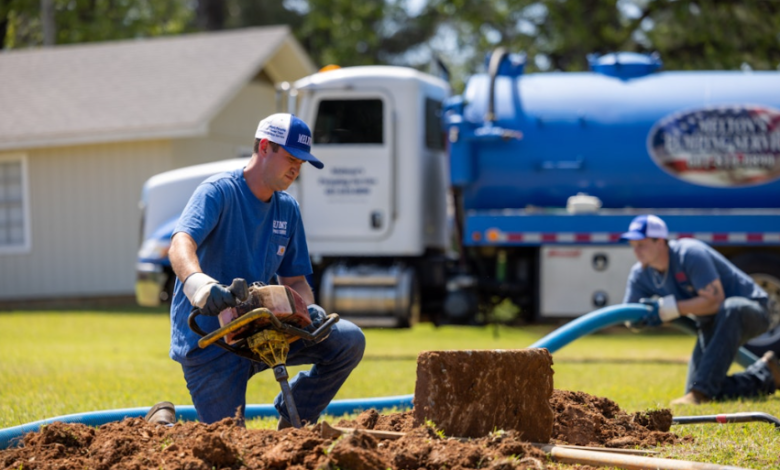Smart Technology and Environmental Impact on Florida Septic Maintenance Costs

Smart home technology is transforming nearly every aspect of household management, and septic systems are no exception. Across Florida, where many homes rely on private wastewater systems instead of municipal connections, new smart tools are helping homeowners monitor performance, prevent breakdowns, and manage costs more effectively. From advanced sensors to automated drain field monitors, these innovations bring transparency to what was once a hidden, unpredictable system buried underground.
Modern systems can now send alerts when tanks are near capacity, detect leaks, or track water usage patterns in real-time. Mobile apps pair with sensors to provide instant notifications, helping homeowners act before small problems escalate. By catching issues such as clogs or leaks early, homeowners can avoid wasteful water use and costly system failures, saving money and protecting the environment simultaneously.
The Role of Environmental Conditions in Florida
Florida’s environment creates unique challenges for septic systems. High groundwater levels, sandy soils, and heavy seasonal rainfall all impact how a system functions and how frequently it requires maintenance. Rising sea levels and increasing precipitation further complicate maintenance schedules, especially for homes in coastal or low-lying areas.
These conditions can cause floodwater to drain into fields or allow untreated wastewater to seep into nearby waterways, posing significant health and environmental risks. As regulations tighten in response, homeowners are turning to smarter systems and more frequent monitoring. This shift not only helps protect Florida’s fragile ecosystems but also ensures compliance with evolving environmental standards.
See also: Why Every Homeowner Prefer Professional Gutter Cleaning
Green Practices That Lower Long-Term Costs
Environmental awareness doesn’t just benefit the planet; it also helps homeowners save money. Managing wastewater responsibly reduces strain on the system, extending its lifespan and minimizing repair costs. Simple eco-practices such as using water-efficient fixtures, spacing out laundry loads, and avoiding chemical drain cleaners can significantly improve system performance.
Smart septic components reinforce these habits by providing data that guides smarter decisions. For instance, usage tracking might reveal that shower times or laundry frequency are exceeding the system’s limits, prompting small behavioral adjustments that lead to significant savings. When homeowners combine eco-friendly habits with
technology-driven insight, they achieve an optimal balance between efficiency and sustainability.
The Cost Calculation of Staying Connected
Although investing in smart monitoring technology incurs an upfront expense, it reduces long-term costs through preventive and maintenance planning. The technology helps homeowners predict optimal pumping intervals, preventing over-servicing and improving budget control. For Florida residents, who often face high service costs due to soil type and flooding risk, this predictive approach is proving invaluable.
Integrating technology can also support remote diagnostics. Service providers can access system data securely, offering targeted maintenance rather than generalized checkups. This level of precision reduces unnecessary visits, lowers fuel-related emissions, and minimizes household interruptions. Data-driven maintenance planning is a win for both household budgets and the environment.
Routine attention to septic system maintenance cost ensures that advanced technology and eco-friendly measures deliver their maximum benefit. Just as homeowners budget for ongoing energy or appliance repairs, setting aside funds for smart maintenance brings long-term stability.
A Glimpse Into the Future of Septic Care
The next generation of septic systems will likely continue blending ecological responsibility with digital convenience. Integration with home automation systems could provide early alerts through voice assistants or automated service scheduling. In high-risk flood zones, predictive analytics might even warn homeowners before environmental conditions threaten the drain field.
As Florida grows and environmental awareness increases, the integration of smart technology and sustainability will shape the state’s approach to septic management. Investing in connected, eco-conscious systems today means preserving both household efficiency and natural resources for decades to come.



